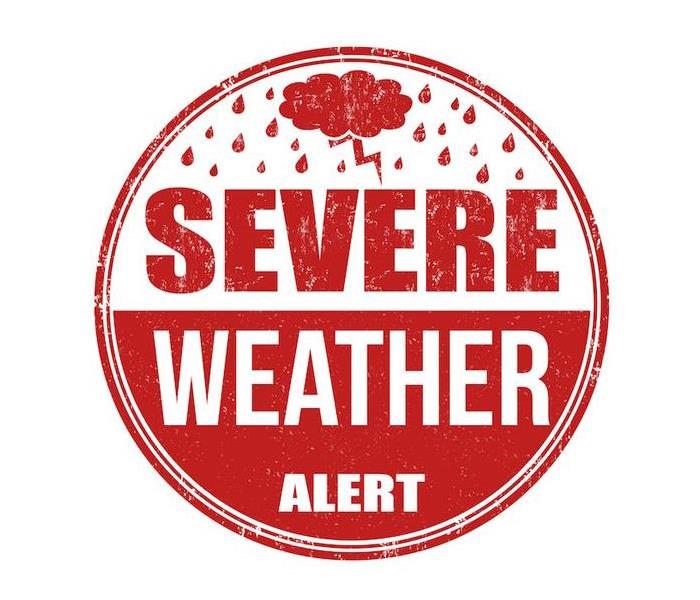Knowing These Weather Alerts Can Help You Stay Safe During Storms | SERVPRO of Marietta West
8/3/2022 (Permalink)
Our national weather system uses at least 42 different kinds of weather alerts, split between seven categories depending on the type of event. This is too much information for the average person to comprehend in daily life, much less when sheltering from a dangerous storm.
By knowing the meaning of warnings and advisories that could be issued, you’ll be able to make better decisions during extreme weather. In addition, you can take steps to keep your home protected from storms.
A good base of knowledge about severe weather is good to have, but more importantly, we should be aware of the risks that affect our area in Georgia most frequently.
How Alerts Are Issued
It may seem simple, but the weather alert system is actually a complex process. Scientists and meteorologists formulate predictions, but do you know how they measure the attributes of a storm? There are multiple factors that affect these predictions.
The National Weather Service handles our country’s forecasting, monitoring and issuing of warnings. The United States is divided up into six regions that are each covered by a different office, along with hundreds of sub-offices that allow for more localized coverage. We receive our coverage and alerts from the Southern Regional headquarters, which relays highly specialized information to the people of this area.
The NWS has many employees, like meteorologists and astronomers that collect data and formulate forecasts for the country. They use information from satellites, seismic meters, and even the Sun’s activity to create the most accurate predictions possible.
The Most Important Alerts to Understand
The first principle that everyone should know is the meaning of a “watch” and a “warning.” You will see these words used in almost every weather event, like floods, tornadoes, hurricanes and thunderstorms.
A watch is when a storm is coming close to your area, and it has the potential to be dangerous for people and property. These alerts will often cover large swaths of land, in an attempt to keep everyone aware of what’s happening around them.
A warning means that danger will be here very soon, and you must take action to stay safe from it. These alerts will only cover a city or county and are highly specialized so that everyone in the path of danger can stay safe.
It’s also important to explore and recognize the weather events that happen here in Marietta most frequently. We’re no stranger to extreme storms in Georgia, and we see dangerous weather like tornadoes and thunderstorms all year long. In fact, we see over 50 inches of rainfall annually, showing us exactly how much water our homes have to battle.
Protecting Your Home During a Storm
Obviously, knowing what weather alerts mean is the best way to stay safe from severe weather. But there are a few things that you can do to mitigate the damage dealt to your home and property.
Clearing your gutters and securing your outdoor furniture are two very simple tasks you can complete before a storm arrives to help prevent flooding or destruction from debris.
It’s also a smart idea to create a safe zone inside your home with nonperishable food, water and an emergency exit plan for your family if things get worse.
When the storm is gone, be sure to take photos of all the damage, and call us at SERVPRO of Marietta West. We’re ready day or night to be there for you.
As we said before, knowing about the weather common in our region can help you be more prepared for the risks we often face. Learn the various alerts used, and keep your home well-maintained so the next storm has less chance of affecting you.
Experienced storm damage to your home or property? Contact us today for a quick response!






 24/7 Emergency Service
24/7 Emergency Service